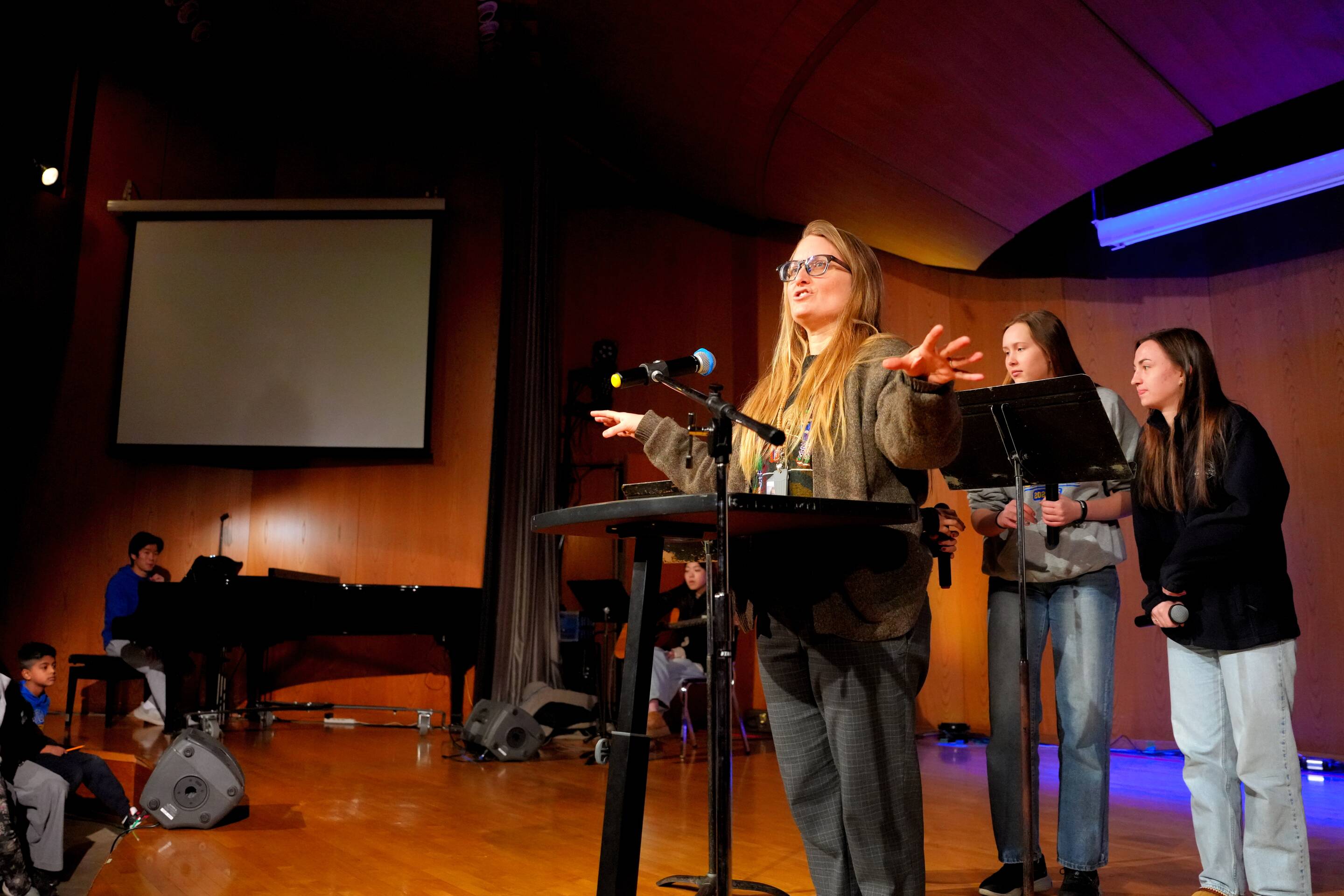Critical Thinking
At CAJ, we know it is important for students to learn facts and understand principles. Even more than acquiring knowledge, we want our students to be discerning and critical thinkers. We do this at every grade level, though these higher level thinking skills in first grade will look quite different than in high school.
We asked teachers what critical thinking looks like at each level at CAJ, and we heard some interesting descriptions. Some teachers in elementary school wrote:
"I love pushing the first graders to think critically in math. When we work on a problem and I see two students with different answers, I never tell them which one is right. Instead, I say, "I notice you have different answers. Can you talk together and see why your answers are different?" This then pushes them to have to explain their thinking and often leads one, or even both, students to have an "aha" moment when they see their mistake."
One elementary teacher described a recent lesson, where inviting students into a conversation prompted an explosion of new ideas:
"I always approach teaching as though my students are hearing the subject matter for the first time. For example, I asked some guiding questions about Good Friday, leading the class beyond what I assumed was common knowledge. Did it get them thinking? Oh, yes. But critical thinking almost always begins with healthy questioning."
Student 1: Mr. E, why is there a 'Special Day' on April 19th?
Teacher: Because it's Good Friday! Do you know why it’s called Good Friday?
Student 2: Because it’s before the weekend?
Teacher: No, because it's the day we remember when Jesus died. But, usually it’s not a good thing when someone dies so why do you think it was good?
Student 3: Oh, I know, because He lost our sins!
Teacher: Well, He didn't exactly lose them because that means we might find them again. He got rid of them completely!
Student 4: But, don't Christians still sometimes sin?
Teacher: Yes, but it’s kind of like a war. Sometimes the war is won but people still have to fight battles. Sometimes people lose the small battles but as long as they are on the winning side they have won the war. When Jesus died on the cross He won the war against sin.
Student 4: So, if we're on Jesus' side then we are on the winning side?
Teacher: That's right! But even though the war is won sometimes people are still fighting battles because they think the war isn't won. They haven't heard yet.
Student 5: That's sad.
Critical thinking does not only happen in Bible class, though often seeing biblical principles in surprising places are part of making important connections. A middle school teacher described:
"I witnessed students thinking critically when subject content overlaps. For example, we were studying Egyptian gods in social studies and Moses in Bible class. During a video in Bible class the host talked about the Egyptian gods and what people believed and how God's power was far superior than any of their "gods." The students responded and talked about the links between the two contents and asked thought provoking questions. I think that when students are asking complex questions, wondering about the answers, and seeking those answers is when we, as educators, can see students thinking critically."
High school is where we see critical thinking maturing. One teacher wrote:
"Through debates, students in high school show critical thinking in two ways. First, by arguing for an assigned position on a difficult or controversial topic, they learn to understand issues from multiple perspectives (including perspectives they might not share themselves). Then, by explaining their own personal position after the formal debate is over, they practice clarifying their own beliefs through the arguments they have expressed or heard."
Even outside the classroom, we see evidence of critical thinking. A counselor reflected:
"As a counselor, I get to witness our students' self-exploration through meta-cognition, thinking about our own thinking. When we examine what we say to ourselves and what we believe about ourselves, about God, and about the world around us, we can make room for truth, change and growth."
We believe that part of equipping students to serve Japan and the world for Christ includes training students to ask question, to think critically, to explore issues, see multiple perspectives, to know thinking strategies, and to see connections. We are pleased and grateful to see evidence of this happening in all levels and in many ways at CAJ.





